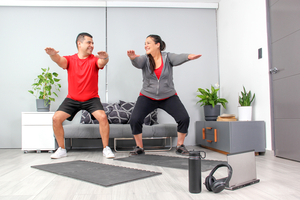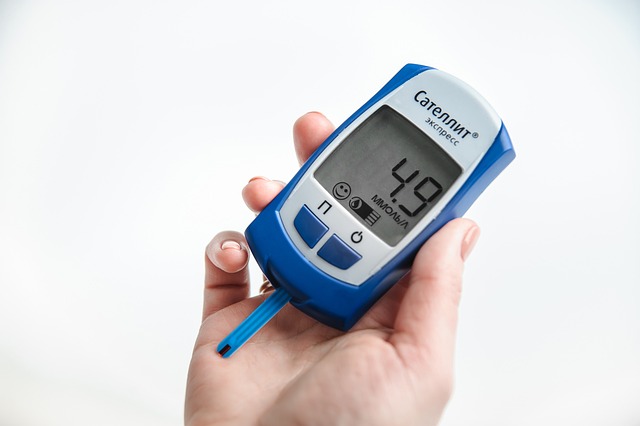In this article:
- Exercise can help improve brain health and cognition.
- Physical activity may help you grow new brain cells in a process called adult neurogenesis. Exercise stimulates factors such as brain-derived neurotrophic factor (BDNF), growth hormone, and insulin-like growth factor-1. These can support new neuron growth in areas of the brain related to memory and learning.
- The recommendation is to get at least 150 minutes per week of moderate-intensity physical activity.
- Developing a habit of exercising can help improve brain function, which in turn can make it easier for you to motivate yourself to exercise!
- Lark can help you turn exercise into a habit with logging and feedback. Lark's personalized coaching can help you make additional healthy habits to help you reach health and weight loss goals.
Do you want to know what can make your brain healthier now and for years to come? It's exercise! Along with benefits such as improved weight control and lower blood sugar and blood pressure, exercise can lead to benefits for the brain. It may even help you grow new brain cells.
Brain-Related Benefits of Exercise
The Physical Activity Guidelines for Americans say that some benefits can be acute. They happen right after exercise. Other benefits are chronic. They can come when you make physical activity a habit.
These are some brain-related benefits of physical activity.
- Reduced risk for dementia, including a lower risk of developing Alzheimer's disease.
- Improved quality of life, including improved control of emotions and increased physical function.
- Lower risk for depression and depressed mood.
- Less anxiety both immediately and long-term.
- Improved sleep, including sleep quality and deep sleep, as well as less daytime sleepiness.
Older adults who exercise regularly may also have improved cognitive function including better attention, memory, and processing speed. And research published in Brain Plasticity finds that exercise can improve long-term memory.
Can Exercise Help You Grow New Brain Cells?
Brain cells are also called neurons. Growth of brain cells is called neurogenesis. Most neurogenesis takes place during infancy, childhood, and adolescence. But neurogenesis can also happen during adulthood, and exercise can stimulate adult neurogenesis.
Adult neurogenesis only happens in some parts of the brain. A main one is the hippocampus. This part of the brain is involved in spatial memory, such as learning and remembering driving or walking routes, and declarative memory, such as memorizing facts or a poem. The hippocampus also helps transform short-term memories into long-term memories for storage elsewhere in the brain.
An article in Frontiers in Neuroscience says that exercise can increase neurogenesis. For one thing, people who exercise regularly tend to have bigger hippocampal areas in their brains. This may be related to the fact that exercise increases levels of a chemical called brain-derived neurotrophic factor, or BDNF, which stimulates neurogenesis and learning.
Two other hormones are also linked to new brain circuit formation. They are growth hormone and insulin-like growth factor-1, as described in an article in International Journal of Molecular Sciences. Exercise supports the function of both of these hormones, which may help explain the benefits of exercise for the brain.
What to Do
The great news is that the same amount of exercise that can help with other benefits can also be good for your brain. The Physical Activity Guidelines for Americans say adults should get at least 150 minutes per week of moderate to vigorous-intensity physical activity, such as brisk walking. You can also add two sessions per week of muscle-strengthening exercises that hit major muscle groups.
For a little motivation, it can help to think about a "virtuous cycle" as described in an article in Journal of Sport and Health Science. In this cycle, when you make exercise a habit, your brain function improves. In turn, as your brain function improves, it's easier to get yourself to exercise. It's a good cycle to be in!
Lark can help you make physical activity a regular part of your lifestyle. Lark is designed to help you build healthy habits to help you hit your weight loss and health goals, including keeping your brain as sharp as can be.
Getting physically active is one of the most impactful choices you can make to manage weight and lower your risk of chronic conditions, such as type 2 diabetes and hypertension. It can be challenging to hit exercise recommendations or be consistent with a program, but having Lark in your pocket can help.
Lark offers personalized coaching designed to help you make choices that are known to lower the risk for diabetes. The program can help you achieve physical activity goals by providing information, reminders, and feedback when you log your activity or other health information. Lark is available 24/7 through your smartphone to help you succeed.
You may be eligible to join Lark at no cost to you if your health insurer offers it as a covered benefit. Just click here to get started in finding out!











.webp)







